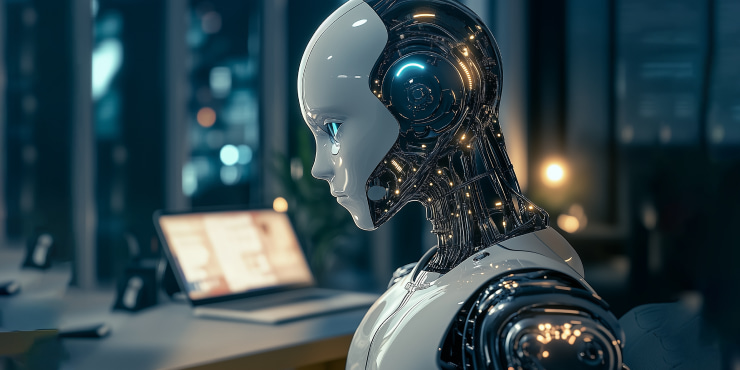Artificial Intelligence (AI) is no longer a futuristic concept confined to science fiction. It has permeated almost every aspect of our lives, changing the way we live, work, and interact with technology. From automating mundane tasks to powering life-saving innovations, AI is transforming our world at an unprecedented pace.
AI in Everyday Applications
In our daily lives, AI works silently yet powerfully to enhance convenience and efficiency. Voice assistants like Alexa, Siri, and Google Assistant perform tasks such as setting reminders, answering questions, and controlling smart home devices. In households, AI-enabled appliances like refrigerators and washing machines optimize their operations based on usage patterns, conserving energy and time.
Entertainment platforms like Netflix, Spotify, and YouTube use AI algorithms to personalize user experiences. By analyzing viewing or listening habits, these platforms suggest movies, shows, or music tailored to individual tastes, increasing engagement. In retail, AI-driven recommendation engines enhance shopping experiences by predicting customer preferences and offering personalized deals.
Even more impactful is AI’s role in customer service. Chatbots and virtual assistants operate 24/7, answering queries, resolving issues, and providing support across industries, from banking to e-commerce. These technologies not only improve efficiency but also ensure that customers have immediate access to assistance.
AI in Medicine and Healthcare
In healthcare, AI is nothing short of revolutionary. It is being used to detect diseases earlier and more accurately than ever before. For instance, algorithms analyzing medical imaging can identify tumors, fractures, or abnormalities with high precision. Wearable health devices, powered by AI, monitor vital signs like heart rate, blood pressure, and oxygen levels in real-time, enabling individuals to proactively manage their health.
AI is also streamlining drug discovery. Traditional processes for developing new medications often take years and cost billions of dollars. AI, however, can analyze vast datasets to identify potential drug candidates within weeks. Furthermore, AI assists in creating personalized treatment plans by analyzing a patient’s medical history and genetic profile.
Robotic surgeries represent another leap forward, with AI enabling precision and reducing risks in complex procedures. Robotic systems like the da Vinci Surgical System are increasingly used in minimally invasive surgeries, improving outcomes and reducing recovery times.
Challenges and Ethical Considerations
While AI has immense potential, it also raises critical ethical and social concerns. Privacy is a major issue, as AI relies on collecting and analyzing large volumes of personal data. Without proper safeguards, this data can be misused or hacked. Algorithmic bias is another concern; if the data used to train AI systems is biased, the outputs may also be unfair or discriminatory.
Additionally, the rise of AI raises questions about job displacement. Automation threatens to replace roles in sectors like manufacturing, logistics, and customer service, potentially leading to unemployment and economic inequality.
To mitigate these risks, governments, tech companies, and researchers must collaborate to develop responsible AI policies. Transparency, accountability, and ethical design must remain central to AI’s evolution to ensure it benefits humanity as a whole.

